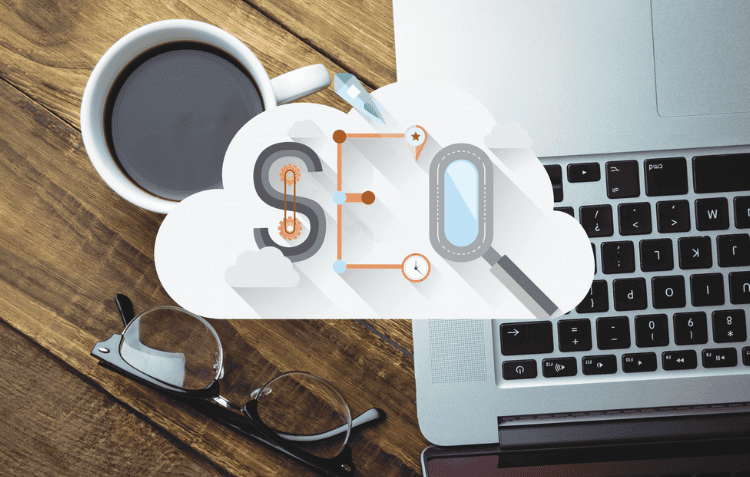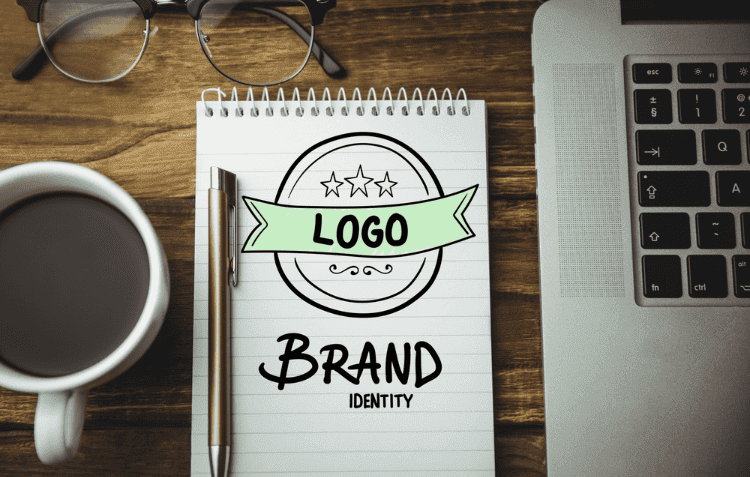What Is the First Step to Sell Your Reputation Smartly?
Your reputation is one of the most valuable assets you own. Whether you are a professional, entrepreneur, or public figure, the way others perceive you can directly impact your success. A strong reputation opens doors to new opportunities, while a damaged one can be difficult to recover from. But did you know that you can strategically position and “sell” your reputation to achieve personal and professional goals?
Selling your reputation smartly doesn’t mean manipulating public perception—it means leveraging your credibility, expertise, and personal brand to create more opportunities. The first step in this process is understanding where you currently stand. Before you can enhance or promote your reputation, you must assess how others perceive you, both online and offline.
In this guide, we’ll walk you through what is the first step to sell your reputation smartly: conducting a thorough self-assessment. Keep reading to learn how to take control of your personal brand and maximize its value.
Understanding the Concept of Selling Your Reputation
Reputation is more than just what people say about you—it’s a valuable asset that can be leveraged for personal and professional success. “Selling your reputation” doesn’t mean fabricating an image; rather, it involves strategically positioning yourself as a credible, trustworthy, and influential figure in your industry.
Building and maintaining a strong reputation requires consistent effort. Whether you’re a business professional, freelancer, or entrepreneur, your personal brand influences opportunities, partnerships, and career growth. Companies and clients prefer to work with individuals who are known for their reliability and expertise. According to a study by Edelman, 81% of consumers say they need to trust a brand before making a purchase. This principle applies to personal branding as well—trust leads to opportunities.
By understanding what contributes to your reputation, you can take control of how you’re perceived. Let’s explore what personal reputation means and why a strong personal brand is essential.
Defining Personal Reputation
Personal reputation is the sum of how others perceive you based on your actions, credibility, and values. It’s built through multiple factors, including:
- Trustworthiness – Do people see you as honest and reliable?
- Expertise – Are you recognized as knowledgeable in your field?
- Consistency – Do your words align with your actions over time?
- Public Perception – How do colleagues, clients, and your audience talk about you?
Your reputation is shaped by your online presence, professional achievements, and interactions with others. Whether you’re looking to advance in your career or build a business, understanding and managing your personal reputation is essential.
The Value of a Strong Personal Brand
A well-established personal brand does more than just enhance credibility—it creates opportunities. People with strong reputations often attract:
- Better Career Prospects – Employers and clients are more likely to trust professionals with a positive reputation.
- Business Growth – Entrepreneurs with strong personal brands build trust with customers, leading to higher conversions.
- Speaking and Networking Opportunities – Industry leaders and professionals with a recognized brand are invited to events and collaborations.
A powerful reputation ensures that when someone searches for your name, they see credibility, expertise, and professionalism. Next, let’s explore the first critical step in leveraging your reputation: self-assessment.
The First Step: Conducting a Comprehensive Self-Assessment
Before you can effectively sell your reputation, you must understand where you currently stand. Conducting a comprehensive self-assessment helps you gain clarity on how others perceive you and where improvements are needed. This process involves analyzing your online presence, gathering feedback from peers, and identifying strengths and weaknesses.
Why is self-assessment important? Because perception is reality. Even if you see yourself as a trustworthy professional, others may have a different perspective. By evaluating your reputation, you can identify gaps and develop a strategy to improve and promote your personal brand.
Let’s break down the key areas of a self-assessment:
Evaluating Your Current Reputation

Online Presence Audit
The first step is assessing how you appear online. Potential employers, clients, and business partners often research individuals before making decisions. Perform an audit by:
- Googling your name to see what results appear.
- Reviewing your LinkedIn, Twitter, and other social media profiles.
- Ensuring your personal website or portfolio reflects professionalism.
- Checking online reviews and mentions in forums, blogs, or news articles.
If negative or outdated content exists, take action to clean up your online image.
Feedback from Peers and Colleagues
Sometimes, we don’t see ourselves the way others do. Seeking honest feedback can provide valuable insights into how people perceive your strengths and weaknesses. Consider:
- Asking trusted colleagues for their opinion on your expertise and professionalism.
- Conducting anonymous surveys among peers.
- Reading recommendations and testimonials on LinkedIn.
Gaining external perspectives will help you align your reputation with your goals.
Identifying Strengths and Weaknesses
SWOT Analysis
A SWOT analysis helps you assess:
- Strengths – What are you known for? What skills set you apart?
- Weaknesses – What areas need improvement? Are there any reputation risks?
- Opportunities – How can you leverage your reputation to gain more visibility?
- Threats – Are there negative perceptions that could harm your credibility?
By identifying these factors, you can create a clear strategy to improve your personal brand and sell your reputation effectively.
Setting Clear Personal Branding Goals
Defining clear personal branding goals is essential for positioning yourself strategically in your industry. Without specific objectives, your branding efforts may lack direction, making it difficult to create a strong and impactful reputation.
Your personal brand should serve a purpose beyond visibility. Whether you want to advance your career, attract business opportunities, or become a recognized industry expert, setting precise goals ensures that every action contributes to your growth. A well-defined personal brand enhances credibility, making it easier for people to trust and engage with you.
By identifying what you aim to achieve and ensuring alignment with your core values, you can build a reputation that not only stands out but also feels authentic.
Defining Your Objectives
To establish a strong personal brand, start by defining your objectives. Common goals include:
- Career Advancement – Gaining promotions or securing leadership roles.
- Business Growth – Attracting clients, investors, or partnerships.
- Industry Influence – Becoming a thought leader through public speaking or publishing.
Once you clarify your objectives, you can create a strategy that aligns with your professional aspirations.
Aligning Goals with Core Values
Your personal brand should reflect what you genuinely stand for. Aligning your branding goals with your values ensures authenticity and long-term sustainability. Consider:
- What principles define your work ethic?
- How do you want to be perceived in your industry?
- What impact do you want to create through your reputation?
A brand that resonates with your core values feels more natural, making it easier to maintain and grow.
Developing a Strategic Action Plan
A strong personal brand requires a structured approach. Once your goals are set, you need a clear action plan to enhance visibility, establish credibility, and build meaningful relationships. This involves improving your online presence, sharing valuable content, and actively engaging with industry professionals.
A strategic plan ensures consistency, making your brand more recognizable and trustworthy. Let’s explore the key steps.
Enhancing Your Online Presence
Content Creation and Sharing
Consistently producing high-quality content establishes you as an authority in your field. To strengthen your online reputation:
- Write blog posts or LinkedIn articles showcasing your insights.
- Share industry-related updates on social media.
- Create videos, podcasts, or infographics to reach a wider audience.
- Engage in guest posting on reputable industry websites.
Well-crafted content not only boosts credibility but also improves search engine visibility, making it easier for potential clients, employers, or collaborators to find you.
Engaging with Your Audience
Your online presence should not be one-sided. Actively engaging with your audience builds trust and fosters meaningful connections. To enhance engagement:
- Respond to comments and messages.
- Participate in industry discussions on platforms like LinkedIn or Twitter.
- Host Q&A sessions or live webinars.
- Join relevant online communities and contribute valuable insights.
Consistent interaction helps establish a loyal audience that values your expertise.
Networking and Relationship Building

Joining Professional Groups
Being part of professional associations and online communities expands your reach. Consider:
- Joining LinkedIn groups related to your industry.
- Becoming a member of industry organizations (e.g., Chamber of Commerce, trade associations).
- Contributing to discussion forums where professionals share insights.
These connections open doors to career opportunities, collaborations, and mentorship.
Attending Events and Conferences
In-person and virtual events help solidify your brand presence. To maximize benefits:
- Attend industry conferences and networking events.
- Speak at panels or host workshops.
- Connect with professionals before, during, and after events.
Engaging in professional circles increases credibility and strengthens your reputation, ultimately helping you achieve your branding goals.
Monitoring and Adjusting Your Strategy
Building a personal brand is an ongoing process that requires continuous monitoring and refinement. A well-planned strategy is essential, but without regular evaluation, you may miss opportunities for growth or fail to address weaknesses.
To maintain a strong and relevant reputation, it’s crucial to track progress, assess feedback, and adapt to industry changes. By staying proactive, you can ensure that your brand evolves with market trends, audience expectations, and professional advancements.
Regularly Reviewing Feedback
Feedback is a valuable tool for refining your personal brand. To assess how others perceive you:
- Monitor engagement on social media, blog posts, or professional platforms.
- Collect feedback from colleagues, mentors, or industry peers.
- Analyze performance metrics such as website traffic, follower growth, and content interaction.
Consistently reviewing feedback helps identify areas for improvement and ensures alignment with your personal branding goals.
Adapting to Changes
A strong personal brand remains flexible and adaptable. To stay relevant:
- Keep up with industry trends and adjust your content accordingly.
- Update your online profiles and portfolios to reflect career progress.
- Improve branding strategies based on constructive criticism and audience insights.
Embracing change allows you to maintain credibility and authority in your field.
Conclusion
Your personal reputation is one of your greatest assets, and self-assessment is the first step toward leveraging it effectively. By understanding how others perceive you, identifying strengths and weaknesses, and setting clear goals, you can shape a brand that reflects your expertise and values.
Taking control of your reputation doesn’t happen overnight—it requires consistent effort, adaptability, and engagement. Whether you aim to advance your career, attract new business opportunities, or establish yourself as an industry leader, a strong personal brand will open doors.
Start today with a simple self-audit: review your online presence, gather feedback, and outline your key strengths. Small, intentional steps will create a powerful and lasting impact on your professional journey.
FAQs
What is personal branding?
Personal branding involves defining and promoting what you stand for, highlighting your strengths, establishing a reputation, building trust, and communicating the unique attributes that you bring to your current or desired industry.
Why is personal branding important?
A strong personal brand enhances your credibility, makes you more memorable, and can open doors to career advancement, business opportunities, and industry influence.
How can I assess my current online reputation?
Start by searching your name on major search engines to see what information appears. Review your social media profiles, personal website, and any online mentions to understand how you’re currently perceived.
What steps can I take to improve my personal brand?
Regularly create and share content that reflects your expertise, engage with your audience on social media, join professional groups, and attend industry events to expand your network and visibility.
How does online reputation management differ from personal branding?
Personal branding focuses on defining and promoting your desired image, while online reputation management involves monitoring and maintaining that image, addressing any negative content or misinformation that may arise.






